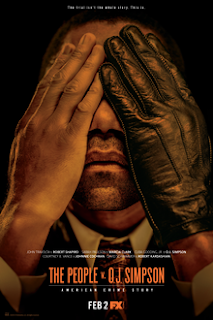The Goldfinger (Cantonese; 2023)
Director: Felix Chong
This film excited me for three reasons. First, the screenplay was written by the same guy who wrote the smash series Infernal Affairs, which later spurred Martin Scorsese's The Departed. Second, my favourite Cantonese stars, Andy Lau and Tony Leong, are in it. Finally, a Malaysian angle is somehow intertwined in the whole imbroglio. The movie is based on the rise and fall of the Singaporean (Sarawak-born) rag-to-riches speculator George Tan and his Carrian group of businesses.
One July morning in 1983, Malaysians were shocked to read about a banker's body that was found in a banana plantation in the New Territory of Hong Kong (HK). From the 10-sen Malaysian coin that was found in the pants pocket, the police managed to determine that he could be Malaysian. They finally discovered that he was Jalil Ibrahim, a Malaysian auditor sent from the Bank Bumiputra Headquarters in Kuala Lumpur to look into some discrepancies in loans dispensed by its subsidiary, Bumiputra Malaysia Finance (BMF).
HK police investigations soon revealed a Malaysian businessman, Mak Fook Than, met Jalil at a hotel, killed him, packed him in a suitcase and disposed of his body at a banana plantation. During the trial, Mak insisted that he was merely a bystander. The actual killer was a Korean named Shin, who was never discovered. There were strong rumours that they were simply pawns. The real killers were someone big high up the food chain, either Malaysian politicians or Carrian group management.
Jalil's investigations from his 6-month stint in HK found that large loans were given to George Tan and the Carrian Group without proper documentation and collaterals. George Tan, an engineer by training, hit terrible times in Singapore in the 1970s and landed in HK. He ventured into the real estate business and found a neck in speculative trading. From there, Tan diversified into other industries. Sometimes, his business dealings were shady, and his partner and he parted ways. With the collapse of property prices and the stock business, the Carrian Group hit hard times. When everyone else stayed away from George Tan, BMF gave them up $ 1 billion. The HK Independent Commission Against Corruption (ICAC) also breathed down their neck. In the meantime, the Malaysian Government, under Mahathir's leadership, was also embarrassed. Technically, Bank Bumiputra was established under the umbrage of the Malaysian Government to aid struggling Malay entrepreneurs. So, it had no business giving out loans to Chinese businessmen. The CIA declassified some of its documents about the BMF scandal. This sanitised version did implicate people high up in UMNO to be cognisant of the hanky panky in BMF.
So, at the end of the day, Jalil's murder was determined to have been unilaterally by Mak. No one in the Carrian Group, George Tan, BMF or UMNO was implicated. BMF chiefs Lorraine Osman and Hashim Shamsuddin were later charged and imprisoned for CBT. The gossip around town put Mahathir and the Finance Minister then, Tengku Razaleigh Hamzah, deep in the cookie jar.
The movie, told in flashbacks and forwards, tells a not-so-interesting account of the tenacity of one man, Lau Kai-yuen, the principal investigator of ICAC, to pin down Henry Ching Yat-yin, a character based on George Tan. After 17 long years, with two missed convictions, Henry (George) was imprisoned for three years in 1996 for the conspiracy surrounding his BMF loan.
(PS. In the movie, Malaysia was referred to instead as 'Timurlaysia'; even the honorific title Datok was used for the Malaysia characters.)
.jpeg)





















.jpeg)

